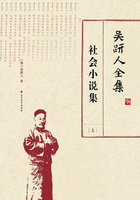The Examination
No sooner had Villefort left the salon, than he assumed the grave air of a man who holds the balance of life and death in his hands. Now, in spite of the nobility of his countenance, the command of which, like a finished actor, he had carefully studied before the glass, it was by no means easy for him to assume an air of judicial severity. Except the recollection of the line of politics his father had adopted, and which might interfere, unless he acted with the greatest prudence, with his own career, Gerard de Villefort was as happy as a man could be. Already rich, he held a high official situation, though only twenty-seven. He was about to marry a young and charming woman, whom he loved, not passionately, but reasonably, as became a deputy attorney of the king; and besides her personal attractions, which were very great, Mademoiselle de Saint-Méran's family possessed considerable political influence, which they would, of course, exert in his favor. The dowry of his wife amounted to fifty thousand crowns, and he had, besides, the prospect of seeing her fortune increased to half a million at her father's death. These considerations naturally gave Villefort a feeling of such complete felicity that his mind was fairly dazzled in its contemplation.
At the door he met the commissary of police, who was waiting for him. The sight of this officer recalled Villefort from the third heaven to earth; he composed his face, as we have before described, and said, "I have read the letter, sir, and you have acted rightly in arresting this man; now inform me what you have discovered concerning him and the conspiracy."
"We know nothing as yet of the conspiracy, monsieur; all the papers found have been sealed up and placed on your desk. The prisoner himself is named Edmond Dantès, mate on board the three-master the Pharaon, trading in cotton with Alexandria and Smyrna, and belonging to Morrel & Son, of Marseilles."
"Before he entered the merchant service, had he ever served in the marines?"
"Oh, no, monsieur, he is very young."
"How old?"
"Nineteen or twenty at the most."
At this moment, and as Villefort had arrived at the corner of the Rue des Conseils, a man, who seemed to have been waiting for him, approached; it was M. Morrel.
"Ah, M. de Villefort," cried he, "I am delighted to see you. Some of your people have committed the strangest mistake—they have just arrested Edmond Dantès, mate of my vessel."
"I know it, monsieur," replied Villefort, "and I am now going to examine him."
"Oh," said Morrel, carried away by his friendship, "you do not know him, and I do. He is the most estimable, the most trustworthy creature in the world, and I will venture to say, there is not a better seaman in all the merchant service. Oh, M. de Villefort, I beseech your indulgence for him."
Villefort, as we have seen, belonged to the aristocratic party at Marseilles, Morrel to the plebeian; the first was a royalist, the other suspected of Bonapartism. Villefort looked disdainfully at Morrel, and replied,—
"You are aware, monsieur, that a man may be estimable and trustworthy in private life, and the best seaman in the merchant service, and yet be, politically speaking, a great criminal. Is it not true?"
The magistrate laid emphasis on these words, as if he wished to apply them to the owner himself, while his eyes seemed to plunge into the heart of one who, interceding for another, had himself need of indulgence. Morrel reddened, for his own conscience was not quite clear on politics; besides, what Dantès had told him of his interview with the grand-marshal, and what the emperor had said to him, embarrassed him. He replied, however,—
"I entreat you, M. de Villefort, be, as you always are, kind and equitable, and give him back to us soon." This give us sounded revolutionary in the deputy's ears.
"Ah, ah," murmured he, "is Dantès then a member of some Carbonari society, that his protector thus employs the collective form? He was, if I recollect, arrested in a tavern, in company with a great many others." Then he added, "Monsieur, you may rest assured I shall perform my duty impartially, and that if he be innocent you shall not have appealed to me in vain; should he, however, be guilty, in this present epoch, impunity would furnish a dangerous example, and I must do my duty."
As he had now arrived at the door of his own house, which adjoined the Palais de Justice, he entered, after having, coldly saluted the shipowner, who stood, as if petrified, on the spot where Villefort had left him. The ante-chamber was full of police agents and gendarmes, in the midst of whom, carefully watched, but calm and smiling, stood the prisoner. Villefort traversed the ante-chamber, cast a side glance at Dantès, and taking a packet which a gendarme offered him, disappeared, saying, "Bring in the prisoner."
Rapid as had been Villefort's glance, it had served to give him an idea of the man he was about to interrogate. He had recognized intelligence in the high forehead, courage in the dark eye and bent brow, and frankness in the thick lips that showed a set of pearly teeth. Villefort's first impression was favorable; but he had been so often warned to mistrust first impulses, that he applied the maxim to the impression, forgetting the difference between the two words. He stifled, therefore, the feelings of compassion that were rising, composed his features, and sat down, grim and sombre, at his desk. An instant after Dantès entered. He was pale, but calm and collected, and saluting his judge with easy politeness, looked round for a seat, as if he had been in M. Morrel's salon. It was then that he encountered for the first time Villefort's look,—that look peculiar to the magistrate, who, while seeming to read the thoughts of others, betrays nothing of his own.
"Who and what are you?" demanded Villefort, turning over a pile of papers, containing information relative to the prisoner, that a police agent had given to him on his entry, and that, already, in an hour's time, had swelled to voluminous proportions, thanks to the corrupt espionage of which "the accused" is always made the victim.
"My name is Edmond Dantès," replied the young man calmly; "I am mate of the Pharaon, belonging to Messrs. Morrel & Son."
"Your age?" continued Villefort.
"Nineteen," returned Dantès.
"What were you doing at the moment you were arrested?"
"I was at the festival of my marriage, monsieur," said the young man, his voice slightly tremulous, so great was the contrast between that happy moment and the painful ceremony he was now undergoing; so great was the contrast between the sombre aspect of M. de Villefort and the radiant face of Mercédès.
"You were at the festival of your marriage?" said the deputy, shuddering in spite of himself.
"Yes, monsieur; I am on the point of marrying a young girl I have been attached to for three years." Villefort, impassive as he was, was struck with this coincidence; and the tremulous voice of Dantès, surprised in the midst of his happiness, struck a sympathetic chord in his own bosom—he also was on the point of being married, and he was summoned from his own happiness to destroy that of another. "This philosophic reflection," thought he, "will make a great sensation at M. de Saint-Méran's;" and he arranged mentally, while Dantès awaited further questions, the antithesis by which orators often create a reputation for eloquence. When this speech was arranged, Villefort turned to Dantès.
"Go on, sir," said he.
"What would you have me say?"
"Give all the information in your power."
"Tell me on which point you desire information, and I will tell all I know; only," added he, with a smile, "I warn you I know very little."
"Have you served under the usurper?"
"I was about to be mustered into the Royal Marines when he fell."
"It is reported your political opinions are extreme," said Villefort, who had never heard anything of the kind, but was not sorry to make this inquiry, as if it were an accusation.
"My political opinions!" replied Dantès. "Alas, sir, I never had any opinions. I am hardly nineteen; I know nothing; I have no part to play. If I obtain the situation I desire, I shall owe it to M. Morrel. Thus all my opinions—I will not say public, but private—are confined to these three sentiments,—I love my father, I respect M. Morrel, and I adore Mercédès. This, sir, is all I can tell you, and you see how uninteresting it is." As Dantès spoke, Villefort gazed at his ingenuous and open countenance, and recollected the words of Renee, who, without knowing who the culprit was, had besought his indulgence for him. With the deputy's knowledge of crime and criminals, every word the young man uttered convinced him more and more of his innocence. This lad, for he was scarcely a man,—simple, natural, eloquent with that eloquence of the heart never found when sought for; full of affection for everybody, because he was happy, and because happiness renders even the wicked good—extended his affection even to his judge, spite of Villefort's severe look and stern accent. Dantès seemed full of kindness.
"Pardieu," said Villefort, "he is a noble fellow. I hope I shall gain Renee's favor easily by obeying the first command she ever imposed on me. I shall have at least a pressure of the hand in public, and a sweet kiss in private." Full of this idea, Villefort's face became so joyous, that when he turned to Dantès, the latter, who had watched the change on his physiognomy, was smiling also.
"Sir," said Villefort, "have you any enemies, at least, that you know."
"I have enemies?" replied Dantès; "my position is not sufficiently elevated for that. As for my disposition, that is, perhaps, somewhat too hasty; but I have striven to repress it. I have had ten or twelve sailors under me, and if you question them, they will tell you that they love and respect me, not as a father, for I am too young, but as an elder brother."
"But you may have excited jealousy. You are about to become captain at nineteen—an elevated post; you are about to marry a pretty girl, who loves you; and these two pieces of good fortune may have excited the envy of some one."
"You are right; you know men better than I do, and what you say may possibly be the case, I confess; but if such persons are among my acquaintances I prefer not to know it, because then I should be forced to hate them."
"You are wrong; you should always strive to see clearly around you. You seem a worthy young man; I will depart from the strict line of my duty to aid you in discovering the author of this accusation. Here is the paper; do you know the writing?" As he spoke, Villefort drew the letter from his pocket, and presented it to Dantès. Dantès read it. A cloud passed over his brow as he said,—
"No, monsieur, I do not know the writing, and yet it is tolerably plain. Whoever did it writes well. I am very fortunate," added he, looking gratefully at Villefort, "to be examined by such a man as you; for this envious person is a real enemy." And by the rapid glance that the young man's eyes shot forth, Villefort saw how much energy lay hid beneath this mildness.
"Now," said the deputy, "answer me frankly, not as a prisoner to a judge, but as one man to another who takes an interest in him, what truth is there in the accusation contained in this anonymous letter?" And Villefort threw disdainfully on his desk the letter Dantès had just given back to him.
"None at all. I will tell you the real facts. I swear by my honor as a sailor, by my love for Mercédès, by the life of my father"—
"Speak, monsieur," said Villefort. Then, internally, "If Renee could see me, I hope she would be satisfied, and would no longer call me a decapitator."
"Well, when we quitted Naples, Captain Leclère was attacked with a brain fever. As we had no doctor on board, and he was so anxious to arrive at Elba, that he would not touch at any other port, his disorder rose to such a height, that at the end of the third day, feeling he was dying, he called me to him.‘My dear Dantès,' said he, ‘swear to perform what I am going to tell you, for it is a matter of the deepest importance.'
"‘I swear, captain,' replied I.
"‘Well, as after my death the command devolves on you as mate, assume the command, and bear up for the Island of Elba, disembark at Porto-Ferrajo, ask for the grand-marshal, give him this letter—perhaps they will give you another letter, and charge you with a commission. You will accomplish what I was to have done, and derive all the honor and profit from it.'
"‘I will do it, captain; but perhaps I shall not be admitted to the grand marshal's presence as easily as you expect?'
"‘Here is a ring that will obtain audience of him, and remove every difficulty,' said the captain. At these words he gave me a ring. It was time—two hours after he was delirious; the next day he died."
"And what did you do then?"
"What I ought to have done, and what every one would have done in my place. Everywhere the last requests of a dying man are sacred; but with a sailor the last requests of his superior are commands. I sailed for the Island of Elba, where I arrived the next day; I ordered everybody to remain on board, and went on shore alone. As I had expected, I found some difficulty in obtaining access to the grand-marshal; but I sent the ring I had received from the captain to him, and was instantly admitted. He questioned me concerning Captain Leclère's death; and, as the latter had told me, gave me a letter to carry on to a person in Paris. I undertook it because it was what my captain had bade me do. I landed here, regulated the affairs of the vessel, and hastened to visit my affianced bride, whom I found more lovely than ever. Thanks to M. Morrel, all the forms were got over; in a word I was, as I told you, at my marriage-feast; and I should have been married in an hour, and tomorrow I intended to start for Paris, had I not been arrested on this charge which you as well as I now see to be unjust."
"Ah," said Villefort, "this seems to me the truth. If you have been culpable, it was imprudence, and this imprudence was in obedience to the orders of your captain. Give up this letter you have brought from Elba, and pass your word you will appear should you be required, and go and rejoin your friends.
"I am free, then, sir?" cried Dantès joyfully.
"Yes; but first give me this letter."
"You have it already, for it was taken from me with some others which I see in that packet."
"Stop a moment," said the deputy, as Dantès took his hat and gloves. "To whom is it addressed?"
"To Monsieur Noirtier, Rue Coq-Heron, Paris." Had a thunderbolt fallen into the room, Villefort could not have been more stupefied. He sank into his seat, and hastily turning over the packet, drew forth the fatal letter, at which he glanced with an expression of terror.
"M. Noirtier, Rue Coq-Heron, No. 13," murmured he, growing still paler.
"Yes," said Dantès; "do you know him?"
"No," replied Villefort; "a faithful servant of the king does not know conspirators."
"It is a conspiracy, then?" asked Dantès, who after believing himself free, now began to feel a tenfold alarm. "I have, however, already told you, sir, I was entirely ignorant of the contents of the letter."
"Yes; but you knew the name of the person to whom it was addressed," said Villefort.
"I was forced to read the address to know to whom to give it."
"Have you shown this letter to any one?" asked Villefort, becoming still more pale.
"To no one, on my honor."
"Everybody is ignorant that you are the bearer of a letter from the Island of Elba, and addressed to M. Noirtier?"
"Everybody, except the person who gave it to me."
"And that was too much, far too much," murmured Villefort. Villefort's brow darkened more and more, his white lips and clinched teeth filled Dantès with apprehension. After reading the letter, Villefort covered his face with his hands.
"Oh," said Dantès timidly, "what is the matter?" Villefort made no answer, but raised his head at the expiration of a few seconds, and again perused the letter.
"And you say that you are ignorant of the contents of this letter?"
"I give you my word of honor, sir," said Dantès; "but what is the matter? You are ill—shall I ring for assistance?—shall I call?"
"No," said Villefort, rising hastily; "stay where you are. It is for me to give orders here, and not you."
"Monsieur," replied Dantès proudly, "it was only to summon assistance for you."
"I want none; it was a temporary indisposition. Attend to yourself; answer me." Dantès waited, expecting a question, but in vain. Villefort fell back on his chair, passed his hand over his brow, moist with perspiration, and, for the third time, read the letter.
"Oh, if he knows the contents of this!" murmured he, "and that Noirtier is the father of Villefort, I am lost!" And he fixed his eyes upon Edmond as if he would have penetrated his thoughts.
"Oh, it is impossible to doubt it," cried he, suddenly.
"In heaven's name!" cried the unhappy young man, "if you doubt me, question me; I will answer you." Villefort made a violent effort, and in a tone he strove to render firm,—
"Sir," said he, "I am no longer able, as I had hoped, to restore you immediately to liberty; before doing so, I must consult the trial justice; what my own feeling is you already know."
"Oh, monsieur," cried Dantès, "you have been rather a friend than a judge."
"Well, I must detain you some time longer, but I will strive to make it as short as possible. The principal charge against you is this letter, and you see"—Villefort approached the fire, cast it in, and waited until it was entirely consumed.
"You see, I destroy it?"
"Oh," exclaimed Dantès, "you are goodness itself."
"Listen," continued Villefort; "you can now have confidence in me after what I have done."
"Oh, command, and I will obey."
"Listen; this is not a command, but advice I give you."
"Speak, and I will follow your advice."
"I shall detain you until this evening in the Palais de Justice. Should any one else interrogate you, say to him what you have said to me, but do not breathe a word of this letter."
"I promise." It was Villefort who seemed to entreat, and the prisoner who reassured him.
"You see," continued he, glancing toward the grate, where fragments of burnt paper fluttered in the flames, "the letter is destroyed; you and I alone know of its existence; should you, therefore, be questioned, deny all knowledge of it—deny it boldly, and you are saved."
"Be satisfied; I will deny it."
"It was the only letter you had?"
"It was."
"Swear it."
"I swear it."
Villefort rang. A police agent entered. Villefort whisPèred some words in his ear, to which the officer replied by a motion of his head.
"Follow him," said Villefort to Dantès. Dantès saluted Villefort and retired. Hardly had the door closed when Villefort threw himself half-fainting into a chair.
"Alas, alas," murmured he, "if the procureur himself had been at Marseilles I should have been ruined. This accursed letter would have destroyed all my hopes. Oh, my father, must your past career always interfere with my successes?" Suddenly a light passed over his face, a smile played round his set mouth, and his haggard eyes were fixed in thought.
"This will do," said he, "and from this letter, which might have ruined me, I will make my fortune. Now to the work I have in hand." And after having assured himself that the prisoner was gone, the deputy procureur hastened to the house of his betrothed.














